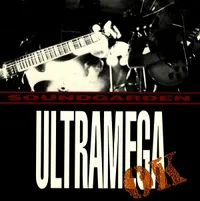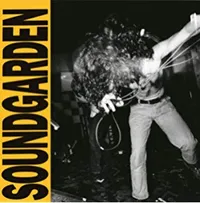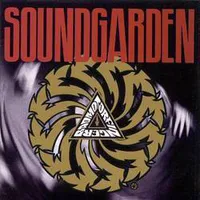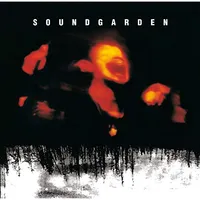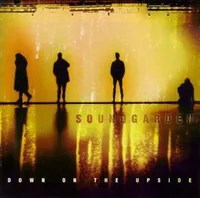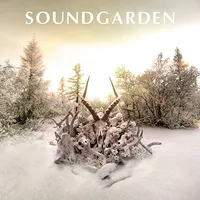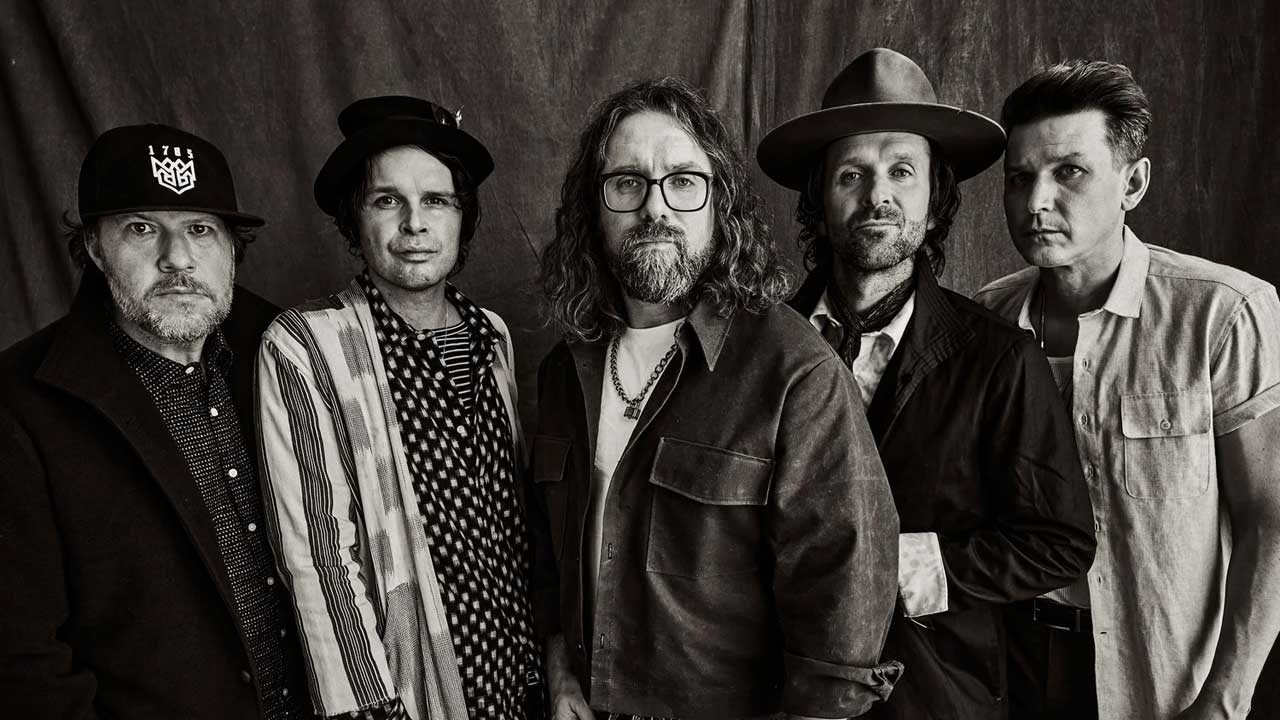Your essential guide to every Soundgarden album
Soundgarden defied barriers and boundaries to become one of the most influential bands of a generation – here, a guide to the band that never stayed in one place for long
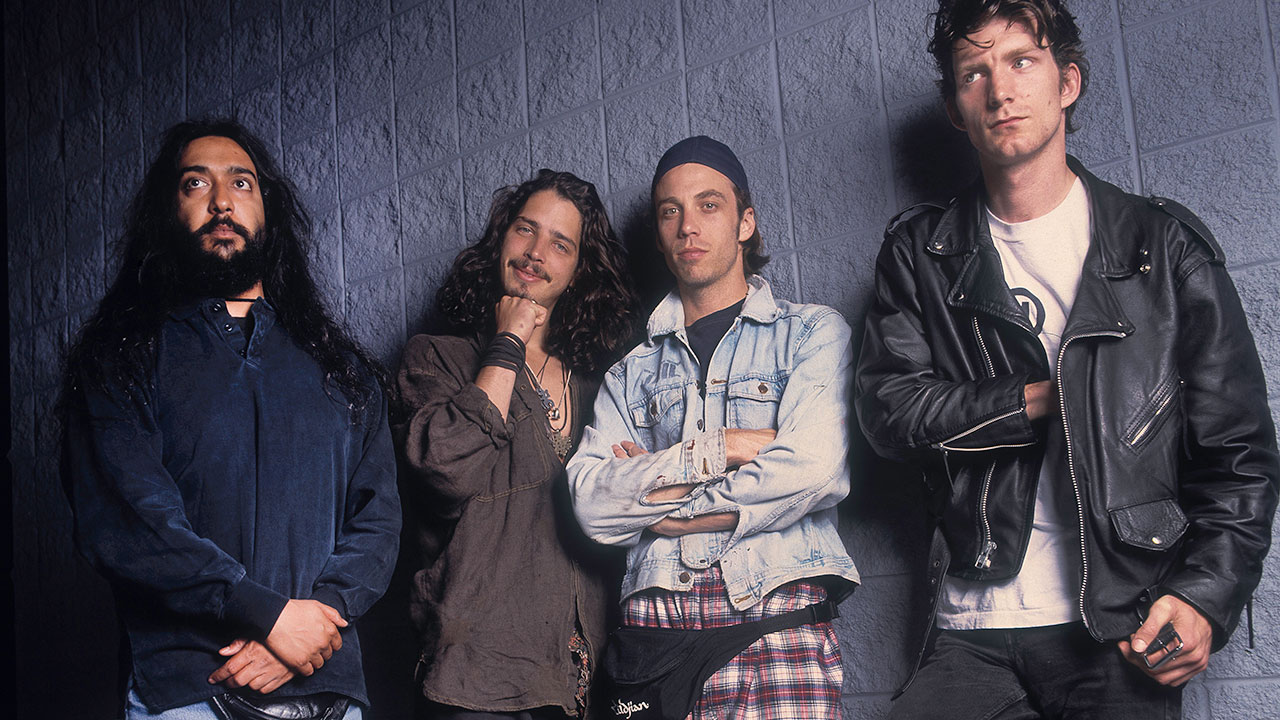
Even at the height of mainstream success, Soundgarden always felt like outsiders. Formed in 1984 by frontman Chris Cornell and guitarist Kim Thayil, they may have been grunge pioneers but they never had any interest in being its ringleaders.
The quartet, whose classic line-up was cemented by the recruitment of drummer Matt Cameron in 1986 and bassist Ben Shepherd in 1990, were classed as sell-outs by Seattleites when they became one of the first local bands to sign a major label record deal. But if A&M had envisaged Soundgarden as the next Guns N’ Roses, a possibility given they were sent out on the road as support to Axl Rose & co., the four-piece had other ideas.
Instead of turning their early punk rawness into straightforward heavy rock anthems, Soundgarden used success to streamline their strangeness. The bigger they got, the weirder their songs became. It was rock music alright – huge, slithery riffs, a howling vocal that could direct ships to shore and a rhythm section locked in with taut intensity – but rock music that sounded like it was being beamed in from the Twilight Zone. There's no stranger rock hit than Black Hole Sun, which sort of sounds like how people on heavy drugs might hear The Beatles but, on the face of it, is also just a really catchy ballad. A warped ballad, yes. A Soundgarden ballad.
They were one of the best bands of their generation but bold sonic adventurers too. That desire to keep exploring would eventually lead to a parting of the ways, with 1996’s wonderfully odd Down On The Upside leading to a split. It was not permanent, though, and a reunion birthed 2012’s King Animal. It would be their last, with Cornell’s tragic death in 2017 putting a full-stop on a band who helped redivert the course of rock music. Their legacy was already assured.
Here, we guide you through a career that never stayed in one place for too long.

Ultramega OK (SST, 1988)
Soundgarden were never happy with their debut. Cornell complained publicly about its sound in the years following Ultramega OK’s release, feeling that the set of songs the band had written deserved better than the production supplied by Drew Canulette.
The unease was lessened when Thayil and producer Jack Endino, who the band had originally tried to enlist for a salvage job only to run out of budget, remixed the album for a re-release in 2017. Aside from reservations on its sonic qualities, the tracks still stand up in 2020. It introduced a template they would hone on records to come, where chiming chords morph into monster riffs and atmospheric interludes are anchored by Cameron’s rhythmical power.
Cornell’s vocals were mesmerising from the off, a vulnerable lost boy one minute and furious banshee the next. The singer’s way with the sort of twisted hook would elevate them to great success and there’s early evidence of it here, especially on the charismatic swagger of All Your Lies. The ideas here would be sketched out more convincingly on future recordings but Ultramega OK was a promising start. The seed had been sown.
Louder Than Love (A&M, 1989)
Accused of betraying their punk roots by signing to a major label, Soundgarden couldn’t have made their second album more of an up yours to their detractors if they’d turned Seattle’s Space Needle into a giant papier-mâché middle finger. Far from being a slick “look, we’re professionals now” move into the mainstream, Louder Than Love was even heavier than their debut, mixing a metal sound with Cornell’s grandiose wail. It was noisy and thrashy but there was a dynamic intricacy to this music. As its cover image of Cornell lost in the moment mid-gig suggests, it also captured the fiery potency of their live show in a way their debut didn’t.
There were some kinks to be ironed out – it’s still hard to fathom that Soundgarden and not, say, Wheatus wrote a song about a friend sleeping with another friend’s mother called Full On Kevin’s Mom – but here, at the end of one decade, was strong evidence that Soundgarden would be a key part of a new wave of bands defining the next. Hands All Over sounds like a prototype grunge anthem. Naturally, they’d never do another song like it.
Badmotorfinger (A&M, 1991)
Released on the same day as Nevermind, Badmotorfinger arrived as grunge was about to turn from musical revolution to a mass market fad. No doubt spotting the Walmart “I Love Grunge” t-shirts coming over the horizon, Soundgarden began to sound like men apart. That sense of detachment fed into the sense of antagonism burning at the heart of Badmotorfinger. Not that it did them any harm – this was their commercial breakthrough and went on to sell over two million copies.
Cornell is an enraged presence throughout, his seething delivery driving Jesus Christ Pose as much as Cameron’s pummelling drums and Thayil’s frantic riffs. The first record to feature Ben Shepherd, replacing original bassist Hiro Yamamoto, it brought an experimentalist edge to their explosive rock sound, where songs would left turn into disconcerting time signatures. That mix of covering inventive new ground at the same as writing big choruses that could be hollered back at them set up a thrilling new phase for Soundgarden and Badmotorfinger’s success proved they were onto something. Now all they had to do was make their masterpiece.
Superunknown (A&M, 1994)
Soundgarden’s fourth album is the quartet’s definitive statement, a perfect blend of jolting rock riffs, rhythmical bursts, rasping vocals. It veers from surging songs you had to race to keep up with and doomy, slow-moving sludge-rock, sometimes pulling into a layby between the two.
Lyrically, Cornell was hitting his peak, writing words that felt both universal and personal, of their time and timeless. At its centre was two ballads, Fell On Black Days and Black Hole Sun, radio hits that resembled lullabies you’d sing to your children if you wanted them to have nightmares. These reflections on depression could well have been written as walls of noise for the singer to hide behind, but instead Cornell’s voice was front and centre, as clear as it had ever been. After years as a bystander, a surveyor of the chaos around him, here Cornell put himself in the spotlight.
Like all great albums, Superunknown is a record of many shades and characters. Elsewhere, there was a silly swaggering groove about a Spoonman that became one of their biggest hits and saw Cameron play pots and pans alongside his usual kit. It’s hard to imagine another rock band at the time who could go from the minor-chord waltz of Lime Wreck to the theatrical lurch of The Day I Tried To Live in one track, never mind over the course of a whole record. They were a band of multitudes, unafraid to explore every aspect of their personality. By removing the shackles, Soundgarden made their career peak.
Down On The Upside (A&M, 1996)
Being globally huge might not have dampened their desire to explore, but there were problems in deciding where to go next. The sessions for their mammoth, self-produced fifth album were marred by stylistic disagreements. Listening to Down On The Upside now, with its shifts from urgent speed-punk to Beatles-y jangles to acoustic balladry to Tom Wait-style horrorscapes over its 16 tracks, you can only admire their audacity. And realise that this is the sort of thing that happens when bands decide to self-produce.
A sign of the group’s standing in 1996 is that this sprawling, disjointed record still went to Number Two on the Billboard 100. Chart success wasn’t enough to keep them together, however, and a long year on the road stumbled to a halt in February 1997 in Hawaii, Shepherd leaving the stage early due to equipment failure and Cornell performing the encore solo. It was the final gig of Soundgarden’s classic era and hardly the triumphant send-off they deserved.
But warts and all, frayed edges not neatly trimmed was how Soundgarden operated best. Down On The Upside isn’t perfect, but it’s exactly the sound that was in the band’s head, transplanted onto tape. No outside interference, no compromise and, a year later, no Soundgarden.
King Animal (Republic, 2012)
Thankfully, the hiatus didn’t last forever. Their reunion album King Animal was undoubtedly not meant to be the end of the Soundgarden story, but whilst disagreements between the remaining bandmembers and Cornell’s family over what to do with unreleased new recordings rumble on, this is currently their final album.
It serves as a solid, satisfactory epilogue, harking back to some of their best moments in the rattling opener Been Away Too Long and the muscular riffing of By Crooked Steps whilst also pushing their sound forward – the kaleidoscopic pop of Halfway There is certainly the only time in their career they sounded a bit like a cross between Tears For Fears and Oasis.
Perhaps King Animal misses some of their former daring but you can’t blame them for playing it safe. Maybe future albums would have re-introduced that crusading spirit but, as a regretful goodbye, this is enough, a tribute to the imperial phase in the late 80s and early 90s when Soundgarden were untouchable. No-one could keep up with them, not even, in the end, their own band members. They were superbeings who took us deep into the Superunknown.
The latest news, features and interviews direct to your inbox, from the global home of alternative music.
Niall Doherty is a writer and editor whose work can be found in Classic Rock, The Guardian, Music Week, FourFourTwo, Champions Journal, on Apple Music and more. Formerly the Deputy Editor of Q magazine, he co-runs the music Substack letter The New Cue with fellow former Q colleague Ted Kessler. He is also Reviews Editor at Record Collector. Over the years, he's interviewed some of the world's biggest stars, including Elton John, Coldplay, Radiohead, Liam and Noel Gallagher, Florence + The Machine, Arctic Monkeys, Muse, Pearl Jam, Depeche Mode, Robert Plant and more.
